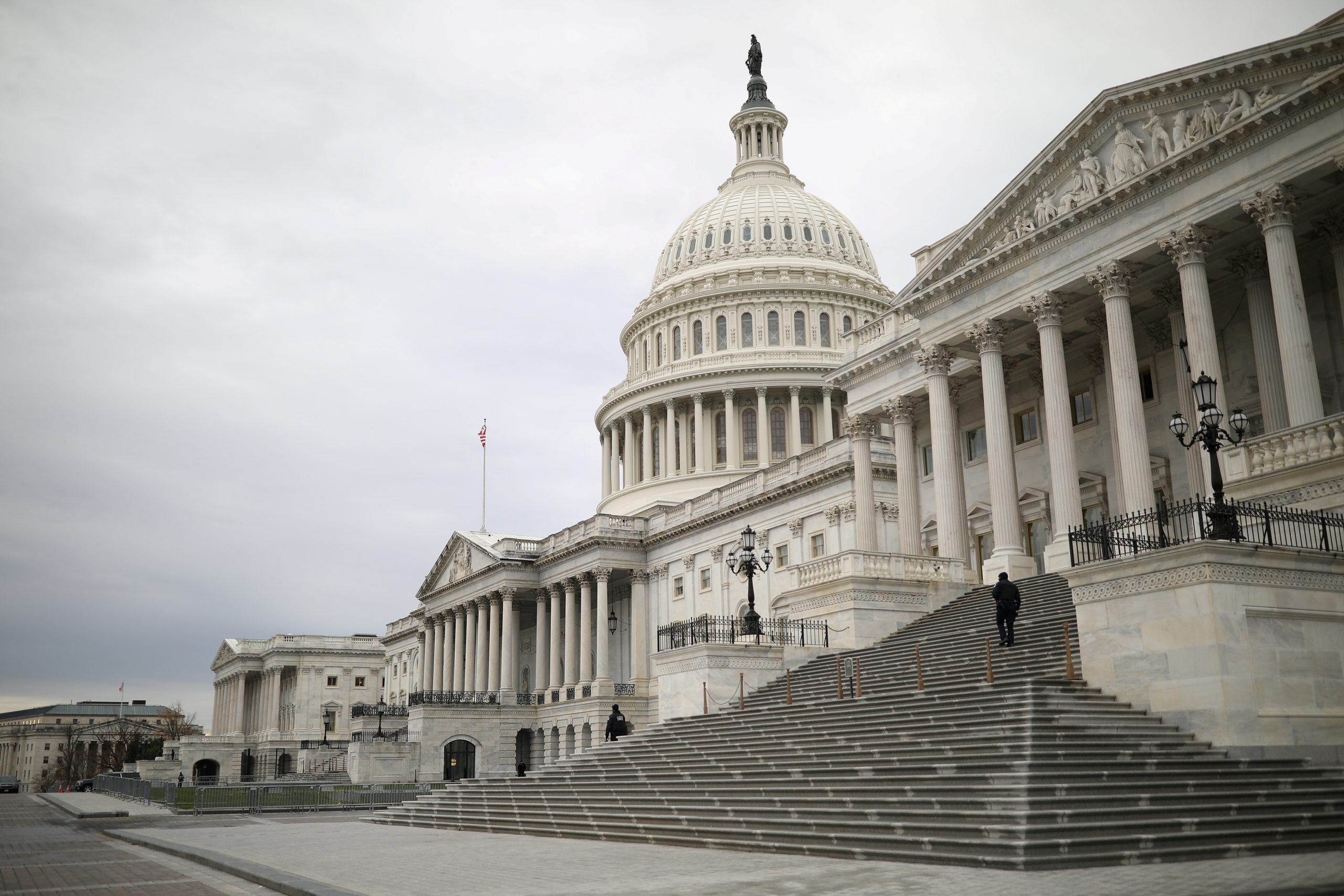U.S. lawmakers expressed optimism on Sunday they would pass a $900 billion coronavirus aid package after senators struck a late-night compromise to clear one of the final hurdles, a dispute over Federal Reserve pandemic lending authorities.
Congressional leaders plan to attach the coronavirus aid package, which includes $600 direct payments to individuals and a $300 per week unemployment compensation supplement, to a $1.4 trillion spending bill funding government programs through September 2021.
U.S. House of Representative Speaker Nancy Pelosi, the chamber’s top Democrat, told reporters on Sunday she wanted to give members some time to review the package before calling a vote.
“I think we’re close, we’re very close,” Pelosi said. “But we want to have members have enough time to review it all.”
Sources briefed on the matter told Reuters on Sunday the deal was expected to grant U.S. airlines $15 billion in new payroll assistance that will allow them to return more than 32,000 furloughed workers to their payrolls through March 31.
The deal would also include $1 billion for passenger railroad Amtrak, $14 billion for public transit systems and $10 billion for state highways, one of the sources said.
The lawmakers face a new government funding deadline of midnight on Sunday (0500 GMT Monday), risking a government shutdown without action. The House of Representatives was due to meet at noon ET (1700 GMT) to take up the bill.
“I do have optimism that it’ll pass,” House Republican leader Kevin McCarthy said in an interview on Fox News’ “Sunday Morning Futures with Maria Bartiromo” program. “I am very hopeful that we get this done today.”
Senator Pat Toomey, a Pennsylvania Republican, had insisted on language that would guarantee that the central bank could not revive emergency lending programs for small businesses and state and local governments after Dec. 31, when they expire under the CARES Act COVID-19 relief legislation passed in March.
Republicans had said the programs are an unnecessary government interference in private business that politicizes the Fed. They accused Democrats of seeking to extend them into 2021 as a backdoor way to provide unchecked funds for state and local governments controlled by members of their party.
Democrats in turn accused the Republicans of trying to tie the Fed’s hands in order to limit Democratic President-elect Joe Biden’s options for boosting the flagging economy after he takes office on Jan. 20.
The Senate adjourned a rare Saturday session with a call from Republican leader Mitch McConnell to avoid last-minute disagreements that could delay new funding for Americans and small businesses.
Republican Senator Mitt Romney said on CNN on Sunday: “I believe there is going to be a deal. There are always sticking points, but the big one was resolved last night … They’re working out some additional points. But I think it’s going to get done. It’ll get done before Christmas.”
San Francisco Federal Reserve Bank President Mary Daly told CBS’ “Face the Nation” on Sunday that the package would provide much-needed relief for the economy.
“This support is unequivocally beneficial,” Daly said.
In the 11 months since the first cases of the new coronavirus were documented in the United States, COVID-19 has killed more than 316,000 Americans, by far the most in the world, and put millions out of work, with unemployment rising. Economists say growth will likely remain sluggish until vaccines are widely available in mid-2021.
President Donald Trump, whose administration has largely left negotiations up to congressional leaders, complained early on Sunday morning that a deal had not been reached.
“Why isn’t Congress giving our people a Stimulus Bill? It wasn’t their fault, it was the fault of China,” Trump said on Twitter. “GET IT DONE, and give them more money in direct payments.”
(Reporting by David Lawder and Patricia Zengerle in Washington, additional reporting by Susan Heavey, Idress Ali and Daniel Burns; Writing by Grant McCool; Editing by Scott Malone and Sonya Hepinstall)

























 Continue with Google
Continue with Google